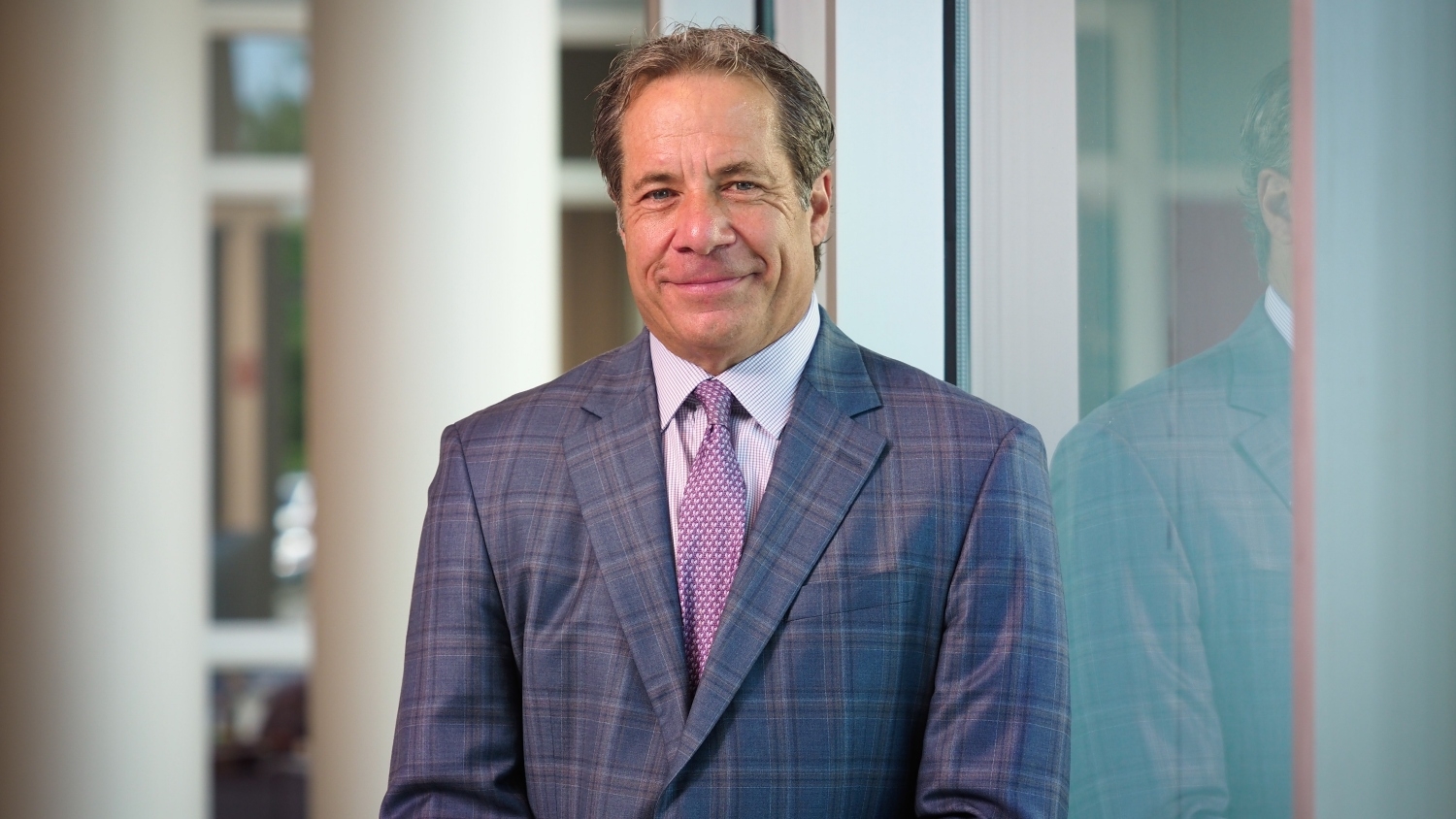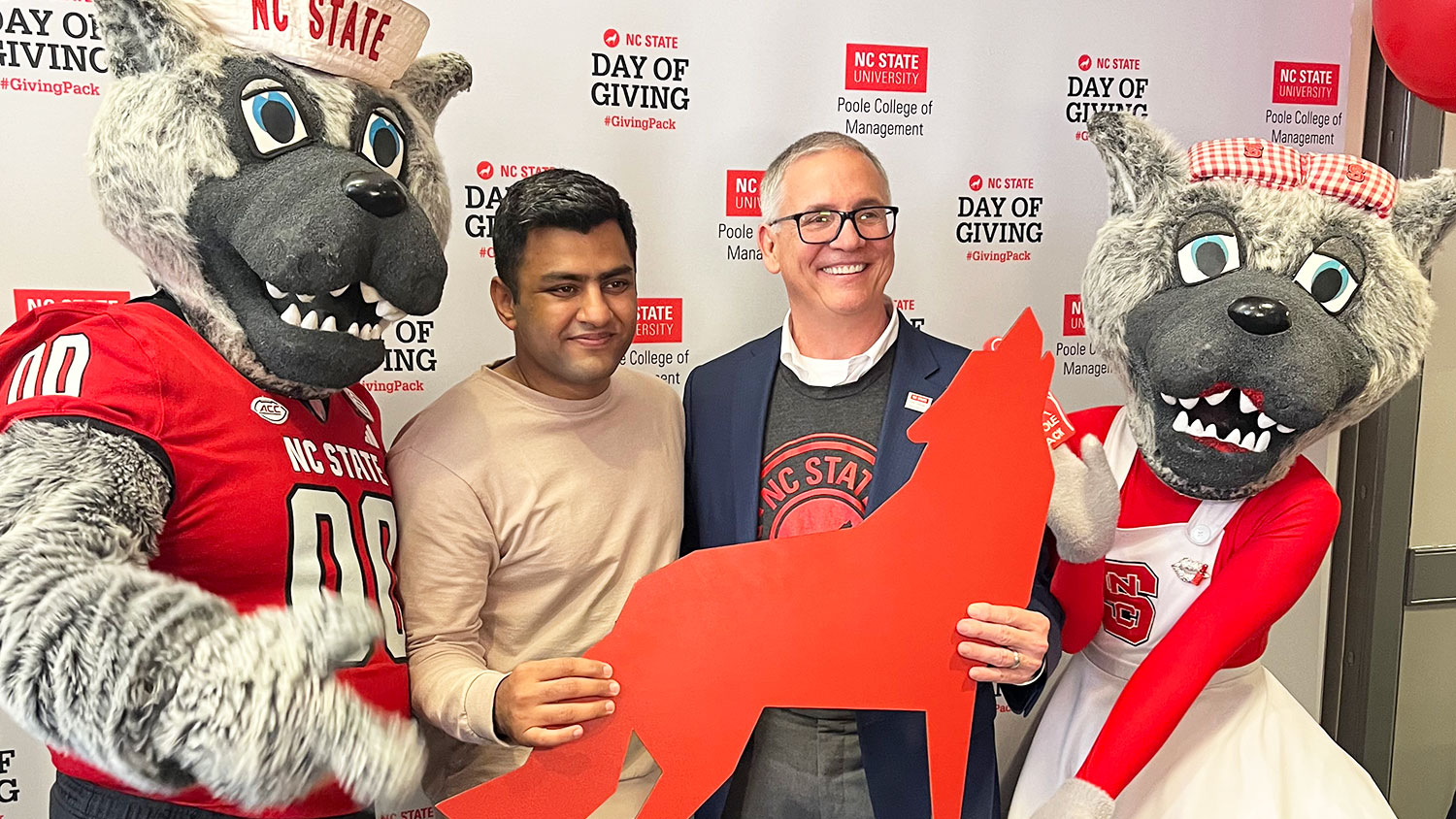GreenPlus Fellowship Helps Jenkins MBA Student Follow Her Passion
She was one of 13 graduate students and professionals nationwide selected to receive the Green Plus Fellowship from the Institute for Sustainable Development (ISD). The fellowships are competitive and the Institute selects only one in 20 applicants.
Green Plus Fellows assist smaller businesses and non-profits in the Institute’s 17 Green Plus partner communities as they strive to improve their economic, environmental and social performance. Over the course of each summer, they also conduct individual and group research projects to advance the principles and practice of triple bottom line sustainability.
Nagy’s primary project is with the AICPA, the non-profit member organization for CPAs, based in Durham, N.C., where she is working on an Accounting for Sustainability case competition for undergraduate students, to be rolled out this fall. She also has secondary projects with the ISD for its Green Plus program.
The internship’s overall focus on sustainability is aligned with Nagy’s deeper personal interest that has been evolving since her childhood in a military family.
“My interest in cleantech (clean technology) came about long before my interest in environmental conservation and social issues, which also came before my interest in Triple Bottom Line sustainability,” she said.
From Windmills to the Triple Bottom Line
“I saw my first windmill when I was four years old, in Holland,” she explains. “Years later, I learned that not only were they more than mere ornamental objects, but that modern versions existed that could generate the kind of electricity that powered my house. I thought the idea of creating traditional power from the sun or from the wind was just about the coolest thing humankind had ever figured out. So my interest in cleantech really developed independently from my interest in sustainability,” she said.
“Then there’s my interest in the environment and in social issues. I like to tell people that I became environmentally aware about the time of FernGully [a 1992 Australian animated film about the rain forest deforestation], but to be honest it was really a combination of my travels while growing up in the military, my time working as an assistant chef, and my time as a student, which allowed me to really reflect on my views and to study and learn about them,” she said.
“This interest sort of naturally segued into an interest in how business could really lead the way in these issues,” Nagy said.
“A lot of people in the environmental movement think that business and commerce are natural enemies.” she said. There may be some truth to that view given past practices but there’s evidence of change in the past 25-30 years with growing awareness “that our resources might not be infinitely available,” she said.
“Meanwhile, if business has some of the biggest impact on the environment and on people, then naturally the best place to make changes and demonstrate leadership is also in commerce,” she said.
Nagy said she’s always “gravitated toward a good challenge, and when I heard that being socially and environmentally responsible could only be costly, I naturally made it my life’s path to disprove it. And we’re finding more and more that businesses find Triple Bottom Line initiatives provide immense cost savings and open new channels for revenue generation. New revenues – That’s what really gets me excited about being here, now, as an MBA candidate with interests in sustainability. We’re finally and definitively proving the naysayers wrong.”
Why the NC State Jenkins MBA?
Nagy said she chose the NC State Jenkins MBA program for several reasons.
“First,” she said, “it’s obviously less expensive than much of what’s out there, while still having well-established ties with the community and enjoying some reputational advantage from its strengths in technology and engineering. So it was a great deal.”
Also, the supply chain management curriculum in the NC State College of Management “really resonates with me, and few others have strong programs like NC State. Schools that do have strong programs would have involved uprooting myself and relocating, generally to areas with much higher costs of living,” she said.
Nagy had launched her career with Aramark, working in various production/operations, accounting, and business roles. “I worked in one of their catering and banquet operations, where I led a major greening push, until I came back to school last fall,” she said. “Much of my background has been in production, operations, and numbers. I’m oriented to be a fixer and an optimizer. In that respect, my curriculum in supply chain is incredibly fitting for my general intellectual orientation,” Nagy said.
“I also think that in an increasingly global economy, making changes along the supply chain will be one of the biggest areas for changes in the environment, in communities, and in profitability.” And that segues into her third reason for choosing NC State for her graduate studies. “The Aspen Institute’s Beyond Grey Pinstripes ranked NC State pretty high in student exposure to sustainability, and with the NC Solar Center here,” she said.
I figured it’d be a great opportunity,” she said, adding that she also was attracted to the organizational culture in the NC State Jenkins MBA program.
“I didn’t want to be part of a cutthroat program where I’d end up working myself to death in an attempt to constantly best my classmates,” she said. “I wanted rapport with grounded people, to genuinely like my classmates for more than the opportunity to leverage their business cards. Given the traditional Fortune-50 focus of other area schools, I didn’t think I’d get the kind of community there that I would here at NC State.”
NC State Net Impact – Sustainability in Action
Since entering the college in fall of 2009, she also found a home base for her interest in sustainability – Net Impact, an international organization for business students and professionals that focuses on sustainability. She now serves as vice president of the NC State chapter.
“My wonderful executive team and I were elected in December 2009. I love working with a bunch of peers who value responsible, profitable business and who have diverse ideas about how to accomplish that. As our chapter is relatively quite young and small, our primary focus is getting our group to stand on its own as an active, effective chapter which leverages its strengths,” she said.
Her summer GreenPlus fellowship assignments align with the student organization’s goals for the coming academic year.
“Our biggest goals this year will be getting members out of Nelson Hall (where the College of Management is located on the NC State campus) and into businesses, and really encouraging members to engage with professors, other chapters, employers, and the national organization,” Nagy said.
“We’re lining up some great site visits that highlight the elements of the Triple Bottom Line in very different ways, and are bringing some experts to campus to talk to us. We’re working hard to schedule events to be more inclusive of first-year, second-year, and part-time MBA students,” she said.
“Also, look out for our symposium this fall. It should be a pretty great event,” she said. The Net Impact group has hosted a Sustainability Symposium most years since the college’s chapter was founded in 2005 by then-NC State Jenkins MBA students Gary Bernstein (MBA May ‘07) and Jacob Traverse (MBA December ‘06).
Online Networking Opens Door to Sustainability Fellowship
Nagy learned about the Institute for Sustainable Development’s Green Plus fellowship through the NC Sustainability Network group on LinkedIn. “I’ve been a casual observer of the group since my undergraduate days. I applied (for the fellowship) because, despite being a nonprofit, it offered the chance of engaging the business community in sustainability,” she said.
“This program in particular appealed to me because, in addition to the fact that it combines elements of my three major interest areas, it’s centered on small businesses and non-profits which are underserved as a rule, especially considering they comprise roughly 99.7 percent of all business in the U.S. Not to mention I was lucky enough to be assigned in my home community of Durham,” she said.
“Once I interviewed for the position, they realized what a nerd I am and asked me to interview again with the AICPA for the project they were sponsoring. We clicked, and here I am,” she said.
Developing Accounting for Sustainability Case Competition for Undergrads
In her primary assignment this summer, Nagy is working with the AICPA to formulate and write a case competition for undergraduate accounting students, engaging them on the topic of accounting for sustainability.
“I’m responsible for taking the AICPA’s wishes for the competition and some of the foundational research, and adding to it with my own research to write a case, sort out logistics – including establishing a judging panel – and making sure the case is ready to roll out nationwide and seamlessly execute for this fall,” Nagy said.
Details of the competition will be available by late summer, and will be posted on a new website that AICPA is creating for it. The url will be www.thiswaytocpa.com.
Nagy is working with Rebecca Mahler, AICPA manager of Career Research and Student Organizational Partnerships, and Scott Moore, AICPA senior manager, College and University Relations. Moore is also an NC State Jenkins MBA student, in the part time program for working professionals.
Green Plus Diagnostic, Certification
In her secondary projects with the ISD, she is working with the Durham Chamber of Commerce, helping to market the Green Plus diagnostic and certification, and is consulting with program members who haven’t achieved certification to help them move toward their sustainability goals in each segment of people, planet, and performance.
“Depending on how quickly I tackle my other projects, I may also be working on a research project that could result in a white paper that would be used as a reference tool for small businesses and non-profits across the country,” she said.
Personal Background
Although Nagy grew up in Alabama, she says, “Really, I was an Army brat, so I had already lived in six places on two continents by the time I was ten. Once we settled in southeast Alabama, though, we stayed there for a long time.”
She graduated from the Alabama School of Math & Science in Mobile, Ala., a public charter school modeled after North Carolina’s own School of Science & Math. For her undergraduate studies, she attended first Wake Forest University and then the University of North Carolina-Chapel Hill, earning a bachelor’s degree from UNC-Chapel Hill in 2004, in political science with concentrations in Latin American studies and Spanish.
Photo Cutline
From the left: Scott Moore, AICPA senior manager, College and University Relations; Stacie Nagy, NC State Jenkins MBA student and GreenPlus Fellow; Rebecca Mahler, AICPA manager of Career Research and Student Organizational Partnerships.


